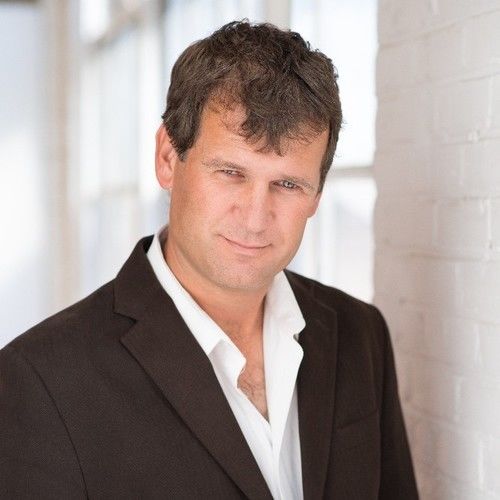
Gerhardus C. Van Wilgen
Hothouse Theatre Co.
Playwright, Screenwriter and Theatre Director
Voorhees, New Jersey
October 2016
> 2 weeks ago
0
About Gerhardus
I was born and raised in Groningen, the Netherlands, one of the most stand-out cities in the world (look it up, from the beginning of time "we" have been riding to our own beat.) As a kid I fell in love with reading and all the librarians at my local library in "De Trefkoel." Yes, I was one of those children who read the Iliad and the Odyssee before I knew what they were and why they were significant. In high school I walked around with copies of Céline and Zola in my book bag.
My drive to write mostly is fueled by the orthodox protestant church I grew up in. Every service, two on every Sunday, was a lesson in story telling; how not to. Like many people who grew up in this "system" I have always dreamt of standing there in that pull pit and give those faithful hypocrites my two cents. Every Sunday my mind wandered free for a couple of hours and yes, back in the seventies I invented hand held games, the iPhone , and the Kindle as well. Not to mention all kinds of horrific medical procedures I wanted to experiment with. (I also founded the National Amateur Surgeon Society.) I would like the church for enforcing my imagination muscles.
Since I wanted to be a writer I decided to take journalism, since there were no other school in the country where you could learn how to write. I excelled sporadically. It was frustrating, I had a good nose for news, but never got the reward. In my final project I had one front page story. Through a source in the Ministry of Education I was able to calculate how much scholarship money was paid fraudulently annually. My committee members didn’t even look at it and when I wanted to publish it later on I was vilified by the government for abusing my role as student.. It was weird; over there the truth has layers. A similar thing happened later on when I was the Homeless Editor for a Rotterdam weekly magazine. I thought it would be a nice idea to have the homeless interview an assemblyman, for the magazine, on record. Turns out this guy said some outrageous things, which were printed, but when he was asked about his statements he responded that this wasn’t a “real” interview. More hypocrisy. I was young at the time and should have fought the battle, but I was glas the initial story was published in the first place and decided to move on to other fun projects.
Around that time I became a trainee in a huge translating project: Ryan’s Hope. I had written a view scripts in order to apply for the job. I felt at home in between a group of seasoned writers who were supposed to translate the first episodes and then take the character on their own Dutch journey. Unfortunately the producing company Van den Ende decided to do the writing in-house and all of us were dismissed. During that time I worked at various film sets as gaffer and general assistant.
After moving to the US in 1996 I directed my attention to shirt story writing. I studied creative writing at Rutgers Summer Writer’s Conference and discovered that I wrote mostly in dialogue. In the mean time I also completed the prestigious Walnut Street Theatre Director’s Lab. In my final project I had a plan to frame a Horton Foote one act. The idea was to give the actors an alternate character which came into play off stage, where they were still visible. The play was to be performed on a thrust stage. Unfortunately at the last moment the location of the performance was changed and we had to use the proscenium thereby obstructing my sight lines.
I would like to point out that my main task for the last twenty years or so was the care of two sons. My wife is a successful career woman and worked internationally most of the time. The disadvantage was that writing and the theatre have alway been relegated to a lower spot on the priority ladder. Now the kids are more or less grown up and can I devote my life to writing full time.
In this first period (1996-2000) I also joined the legendary Brick Playhouse as a playwright-member. Apart from writing and directing, I mostly listened to other writers’ work; there was a play reading every Tuesday night. Most of them were horrendous first drafts. What I learned was to hone my self critiquing skills.
In 2000 we moved to the heartland: Omaha Nebraska. The kids had a ball and I obtained an MA in theatre with an emphasis on playwriting.
In 2005 we moved back to New Jersey. By this time I had my green card, but was too long out of the working force to be eligible for a job. Besides, my wife was commuting to Zurich and the kids were occupied with sports, music lessons; all that fun stuff.
I facilitated a Shakespeare discussion group at the library in Collingswood and read most of his plays - boy, talk about an education. There aren’t many more satisfying experiences in life than clearly mapping out and explaining a whole Shakespeare play, but I am biased.
A young woman approached me after Shakespeare’s The Winter’s Tale, which I directed for the Collingswood Shakespeare Company, and said: this is the first time I went to a Shakespeare show and I understood the whole play. I took that as a compliment. Not to mention the fact that many of the actors had peek performances.
I prefer to direct individuals before I assemble the ensemble. First off , it’s more efficient use of time. To me is utterly ridiculous and unconscious to have people waiting a whole evening for a 10 minute rehearsal. When I directed Oscar Wilde’s The Importance of Being Earnest I rehearsed with individuals and duos up until dress week where I assembled the cast. By keeping the actors apart they are better able to get into their own character. Ensembles to me are bland, like the personalities are bleeding into each other. Additionally, I added two characters to the performance: Walt Whitman and Oscar Wilde. The actually met here close by in Camden and we pretended to perform the show for them (although Wilde wrote the play after they met.) The interesting result was that the two, who were watching in the frame, added focus to the performance.
My most experimental show was called SS Elizabeth. Here I exhibited 8 characters in the Maritime Museum. The idea was to create an interactive show where through asking question the audience would be able to retrieve the story. The story was that these people travelled through time from 1870 to the Jersey Shore. The camp director who found them put them up and put them in a show to make some money to cover the costs. In the preparation I worked with the theatre department of Stockton University. Together with them I researched fundamental life conditions of Americans in 1870. I wanted the actors to be able to answer questions like: what do you eat, how do you cut your nails, how do you feel? I wanted to step away from the idea that someone from the past is supposed to know everything, like you see in reenactment. I wanted these characters to know nothing historical, although they did carry all kinds of secrets. I have to admit the set up didn’t work because the audience didn’t ask questions. In order to change the contract between performer and audience I have to do more than just write a back story in program.
The reason why I did the show was that I think the audience needs to be engaged and active and not passive brain dead consumers. I would love to do Shakespeare’s As You Like It with a rowdy drunken audience to play with call and response.
Due to family circumstances I limited my directing projects the last couple of years. Every show is an all consuming moloch that hampered the interests of the kids - which is fine. I also spread my wings somewhat; I obtained an captain’s license, became a Master Gardener, ran various non profits, dabbled in Dutch politics, exhibited my photography, learned to play violin and became even more proficient in the kitchen.
I have been writing a series of plays, script, a novel and a musical; now I’m sitting on them like a chicken on her eggs, quietly waiting to hatch… We ‘Groningers’ do things our own way.
Unique traits: Eternal outsider. High standards. Sharp story analyst. Highly political. Lover life hate narrow mindedness.
Badges
Certifications
Credits
-

The Safe Word is Begonia (
2012 - 2014 )
Theater by BSomeday writer Burlesque "pulp." A 1950's librarian seeks to help a client and discovers the world of s&m.
Education
-
University of Nebraska at Omaha
(2001-2004)

